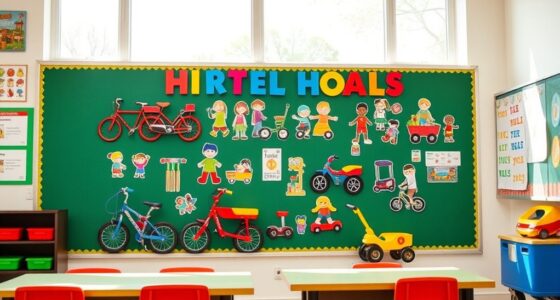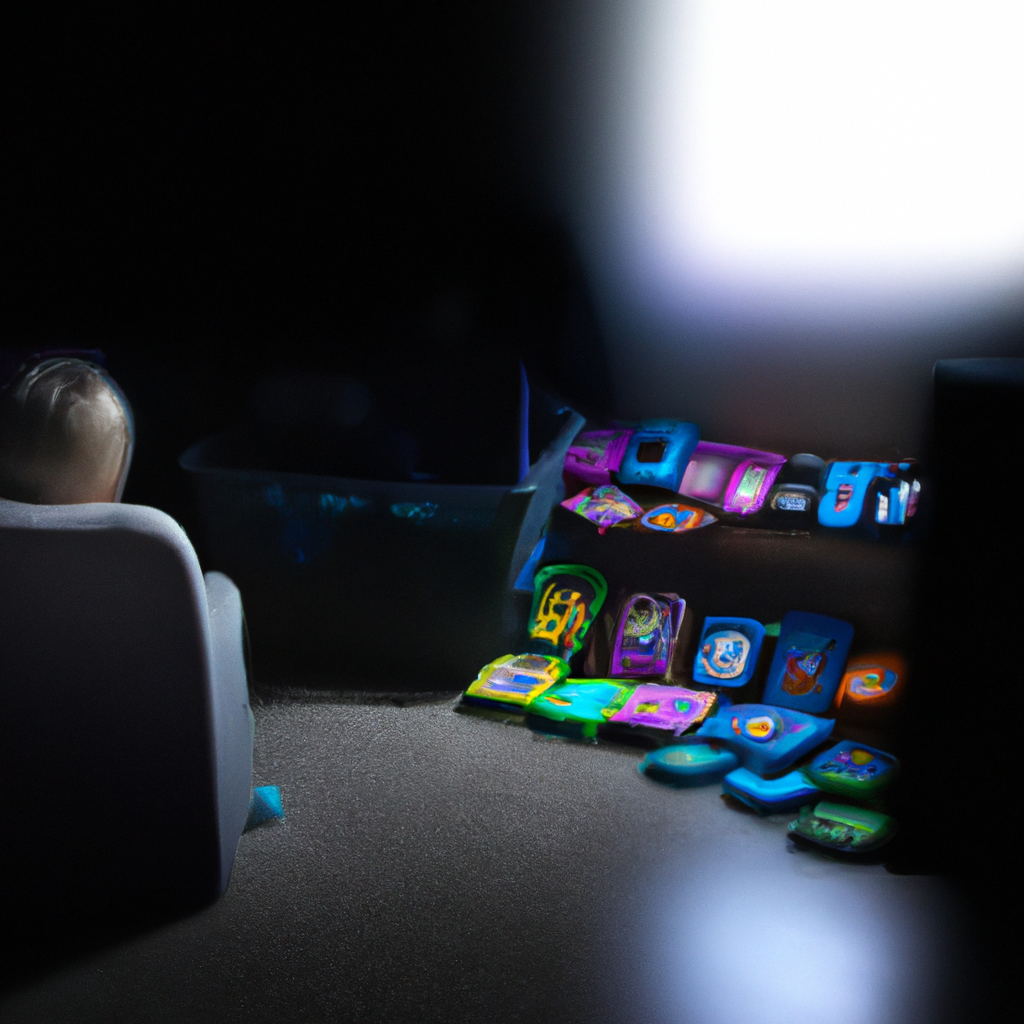Have you ever thought about how children develop important social skills? In this article, I will explore the concept of socialization during childhood development.
Socialization plays a crucial role in shaping a child’s understanding of the world and their ability to interact with others. We will delve into the definition of socialization, the role of parents in this process, and the various types of socialization that children experience.
Additionally, we will examine the impact of socialization on emotional development, cultural diversity, gender roles, and school readiness.
Let’s dive in and explore the fascinating world of socialization in child development.
Key Takeaways
- Socialization plays a crucial role in the development of important social skills, cognitive abilities, and language acquisition in children.
- Cultural influences and family dynamics greatly impact the socialization process and shape social behavior.
- Parents play a significant role in a child’s social development through their involvement, guidance, and shaping of social norms and expectations.
- Peer interactions and school environments also contribute to socialization by shaping identity, providing emotional support, and facilitating the development of social skills and self-esteem.
The Importance of Socialization in Child Development
Socialization is crucial in a child’s development because it helps them develop important social skills. Through socialization, children learn how to interact with others, understand societal norms, and navigate social situations. This process plays a significant role in their cognitive development and language acquisition.
Cognitive development refers to the growth of a child’s thinking and problem-solving abilities. Socialization provides opportunities for children to engage in activities that stimulate their cognitive development. For example, when children interact with their peers, they learn to negotiate, share, and solve conflicts, which enhances their critical thinking and problem-solving skills.
Language acquisition is another important aspect of child development that is fostered through socialization. As children interact with others, they are exposed to language models and learn how to communicate effectively. Through conversation and play, children develop their vocabulary, grammar, and communication skills.
Definition of Socialization in Child Development
Socialization plays a crucial role in child development. It shapes their social and emotional skills, cognitive abilities, and overall well-being. Through social interactions and experiences, children learn how to communicate, cooperate, and navigate social norms and expectations.
Various factors can significantly influence the socialization process and impact a child’s development. Family dynamics, cultural background, and peer influence all play a role in shaping how a child socializes and develops.
Importance of Socialization
The importance of socialization in child development cannot be overstated. Socialization plays a crucial role in shaping a child’s cognitive, emotional, and social development. Here are four key reasons why socialization is essential for a child’s overall growth:
- Emotional Development: Interacting with peers and adults helps children develop empathy, emotional regulation, and a sense of belonging.
- Cognitive Development: Through socialization, children learn to communicate, problem-solve, and think critically, enhancing their cognitive abilities.
- Language Development: Social interactions provide opportunities for children to learn and practice language skills, leading to better communication and literacy skills.
- Social Skills: Socialization helps children develop important social skills like sharing, taking turns, and making friends, which are crucial for healthy relationships later in life.
Understanding the impact of socialization on child development is crucial for parents and caregivers to provide enriching experiences that foster healthy growth and development.
Transitioning into the next section, let’s explore the various factors influencing socialization.
Factors Influencing Socialization
One key factor that influences how children learn and grow is the environment they are exposed to. Cultural influences play a significant role in shaping a child’s socialization process.
Different cultures have distinct norms, values, and beliefs that impact how children interact with others and develop their sense of self. For example, in collectivist cultures, children are taught to prioritize the needs of the group over their individual desires, which can shape their social behavior and self-esteem.
On the other hand, individualistic cultures often emphasize independence and self-expression, which can influence a child’s sense of individuality and self-worth. Understanding these cultural influences is crucial for parents, educators, and caregivers in creating environments that promote healthy socialization and positive self-esteem in children.
The Role of Parents in Socialization
Parents play a crucial role in a child’s social development. Research consistently shows that parental involvement and guidance greatly influence how children learn to interact with others and navigate social situations. From infancy, parents are a child’s primary caregivers and the first socializing agents they encounter. Through their actions, words, and behaviors, parents shape their child’s understanding of social norms, values, and expectations.
Parental involvement in socialization begins with basic caregiving tasks such as feeding, bathing, and comforting. These activities provide opportunities for parents to bond with their child and establish trust, which is foundational for healthy social development. As children grow, parents continue to influence socialization by providing guidance on appropriate behavior, teaching social skills, and modeling positive social interactions.
Research suggests that children whose parents are actively involved in their social development tend to have better social skills, higher self-esteem, and stronger relationships with peers. Parental guidance helps children develop empathy, problem-solving skills, and the ability to regulate emotions. It also helps them understand the importance of respecting others, following rules, and cooperating with others.
In conclusion, parental involvement and guidance play a vital role in a child’s social development. By providing care, guidance, and positive role models, parents lay the foundation for their child’s social skills and interactions.
This sets the stage for the subsequent section about the different types of socialization in child development.
Types of Socialization in Child Development
When it comes to socialization in child development, there are several key factors at play.
One of the most influential factors is the family, as they are the primary agents of socialization for young children. Parents and caregivers shape a child’s values, beliefs, and behaviors through their interactions and modeling.
Additionally, peer interactions also play a significant role in socialization. Children learn how to navigate social relationships, develop social skills, and establish their own identities through interactions with their peers.
Lastly, the role of school is crucial in socialization. It provides children with opportunities to interact with a diverse group of individuals and learn important social norms, values, and expectations.
Family Influence on Socialization
You can’t underestimate the impact your family has on your socialization. Family dynamics and sibling relationships play a crucial role in shaping a child’s social development. According to research, the family environment provides the foundation for a child’s social interactions and behaviors. Family dynamics, such as the level of communication, conflict resolution, and emotional support, greatly influence how a child learns to navigate social situations. Sibling relationships, on the other hand, can teach important social skills like cooperation, negotiation, and empathy. To illustrate the significance of family influence, consider the following table:
| Family Dynamics | Sibling Relationships | Socialization Impact |
|---|---|---|
| Communication | Cooperation | Enhanced |
| Conflict Resolution | Negotiation | Improved |
| Emotional Support | Empathy | Strengthened |
Understanding the role of the family in socialization is crucial for parents and caregivers, as it highlights the importance of providing a nurturing and supportive environment for children to develop social skills. As we transition to the next section on peer interactions and socialization, we can see how these early family experiences lay the foundation for future social relationships.
Peer Interactions and Socialization
Take a moment to consider the impact that peer interactions have on shaping a person’s social skills and behaviors. Peer influence plays a significant role in socialization, as children and adolescents learn from their peers through observation, imitation, and social comparison.
Here are four ways in which peer interactions influence socialization:
- Development of identity: Peer groups provide a platform for individuals to explore and experiment with different aspects of their identity, helping them understand who they are and where they fit in society.
- Social skills development: Interacting with peers allows children to practice important social skills like communication, cooperation, and conflict resolution.
- Norms and values: Peer groups expose individuals to different norms and values, helping them understand societal expectations and develop their own moral compass.
- Emotional support: Peers serve as a source of emotional support, providing comfort, empathy, and understanding during challenging times.
Understanding the influence of peer interactions on socialization can help us develop effective socialization strategies. Transitioning into the subsequent section about the role of school in socialization, we can explore how educational institutions contribute to shaping individuals’ social skills and behaviors.
Role of School in Socialization
The role of school in shaping social skills and behaviors is significant, as educational institutions provide a structured environment for students to learn and practice important social interactions. Teachers play a crucial role in facilitating socialization by creating a supportive and inclusive classroom environment. They encourage collaboration, empathy, and respect among students, setting the foundation for healthy social relationships.
Moreover, the impact of the school environment extends beyond the classroom walls. Extracurricular activities, such as team sports and clubs, offer opportunities for students to interact with their peers in different contexts. These experiences foster social skills, cooperation, and problem-solving abilities.
Additionally, the school environment provides a diverse community, enabling students to interact with individuals from various backgrounds, promoting cultural understanding and empathy. As students navigate these social experiences, they also develop emotional intelligence and self-awareness, which will be further explored in the subsequent section on socialization and emotional development.
Socialization and Emotional Development
Don’t underestimate the importance of socialization in your child’s emotional development. Socialization plays a crucial role in shaping a child’s self-esteem and problem-solving skills. Through interactions with peers and adults, children learn to navigate social situations, manage their emotions, and develop a sense of belonging.
Socialization provides opportunities for children to build relationships and develop a sense of self-worth. Interacting with others helps them understand their own strengths and weaknesses, boosting their self-esteem. Positive social experiences can reinforce a child’s confidence and resilience, enabling them to face challenges with a positive mindset.
Additionally, socialization fosters the development of problem-solving skills. When children interact with others, they encounter different perspectives, opinions, and conflicts. These experiences require them to think critically, negotiate, and find solutions. Through socialization, children learn how to communicate effectively, resolve conflicts, and collaborate with others to achieve common goals.
As we can see, socialization plays a vital role in nurturing a child’s emotional development. It helps them develop a positive self-image and equips them with important problem-solving skills. As we explore the next section on socialization and cognitive development, we will see how these two aspects of child development are interconnected.
Socialization and Cognitive Development
In the previous section, we explored the importance of socialization in emotional development. Now, let’s delve into how socialization influences cognitive development in children.
Cognitive development refers to the growth and maturation of a child’s thinking abilities, including their problem-solving skills, memory, attention, and language acquisition. Socialization plays a crucial role in this process by providing children with opportunities to engage in activities that stimulate their cognitive abilities.
Through social interactions with parents, caregivers, and peers, children learn to observe, imitate, and communicate. They acquire new knowledge and skills by engaging in play, sharing ideas, and collaborating with others. For example, during pretend play, children develop their imagination and problem-solving skills as they navigate various scenarios and roles.
Socialization also facilitates learning by providing children with a supportive environment where they can ask questions, explore new ideas, and receive feedback. It encourages them to think critically, analyze information, and make connections between different concepts.
As we transition to the next section on socialization and language development, it’s important to note that language acquisition is a fundamental aspect of cognitive development. By interacting with others, children learn to communicate effectively, expand their vocabulary, and develop their understanding of grammar and syntax.
Socialization and Language Development
Language development is influenced by social interactions and helps children expand their vocabulary and understand grammar and syntax. Through social interactions, children acquire language skills and learn how to communicate effectively. Social interaction plays a crucial role in language acquisition as it provides opportunities for children to engage in conversations, listen to others, and imitate language patterns.
When children interact with others, they are exposed to a wide range of words and phrases, which helps them expand their vocabulary. Additionally, social interaction allows children to understand the rules of grammar and syntax, as they observe how others use language correctly.
Research has shown that the quality and quantity of social interaction significantly impact language development. Studies have found that children who have more opportunities for social interaction tend to have better language skills compared to those who have limited social experiences. This highlights the importance of providing children with a rich social environment that fosters language learning.
Transitioning to the subsequent section about socialization and moral development, social interaction also plays a vital role in shaping children’s moral development.
Socialization and Moral Development
When it comes to moral development in children, there are three key factors that play a significant role: the influence of peers, parental guidance, and cultural norms.
Peers can have a powerful impact on shaping a child’s moral beliefs and behaviors, as they provide opportunities for social learning and imitation.
Additionally, parents play a crucial role in shaping their child’s moral development through their own values, beliefs, and behaviors.
Lastly, cultural norms and values provide a framework for understanding what is considered morally right or wrong within a specific society or community.
Role of Peers
You’ll find that peers play a crucial role in your child’s socialization. Peer pressure, in particular, can greatly influence a child’s behavior, values, and decision-making.
As children interact with their peers, they learn important social skills such as cooperation, communication, and conflict resolution. These interactions also contribute to the development of their self-esteem, as they seek acceptance and approval from their peers.
Research has shown that positive peer relationships can enhance a child’s self-esteem, while negative peer interactions can have detrimental effects. It is important for parents to support their children in developing healthy peer relationships and to teach them how to resist negative peer pressure.
Parental Influence
Parents’ influence on their children’s social development can have a lasting impact on their self-esteem and ability to navigate peer relationships. Research has consistently shown that the parent-child bond plays a crucial role in shaping a child’s social skills and behavior.
Through their guidance and support, parents provide children with the necessary tools to develop healthy relationships and navigate social situations. This includes teaching them important social skills such as empathy, communication, and conflict resolution.
Furthermore, the quality of the parent-child relationship can greatly impact a child’s self-esteem and overall social development. Children who experience positive and supportive parenting tend to have higher self-esteem and are more confident in their interactions with peers. On the other hand, children who experience neglect or harsh parenting may struggle with social skills and have lower self-esteem.
Understanding the influence of parental guidance on social development is essential for creating nurturing environments that support children’s social growth.
As we explore the impact of cultural norms on socialization, we can see how these societal expectations shape children’s social experiences.
Cultural Norms Impact
Cultural norms greatly influence the way individuals interact and form relationships with others. Understanding cultural values and societal expectations is crucial to understanding how individuals are socialized in different cultures. Here are four ways in which cultural norms impact socialization:
- Role expectations: Cultural values determine the roles individuals are expected to fulfill within their society. These roles shape their behaviors and interactions with others.
- Communication styles: Cultural norms influence the way individuals communicate. This includes verbal and non-verbal cues, such as eye contact, personal space, and gestures.
- Social hierarchies: Cultural norms often establish social hierarchies that dictate how individuals interact with people of different statuses or ages. These hierarchies affect the dynamics of relationships and the level of respect shown.
- Gender expectations: Cultural norms also play a significant role in shaping gender roles and expectations. These expectations influence how individuals are socialized based on their gender identity.
Understanding the impact of cultural norms on socialization is essential for understanding how individuals develop and form relationships with others. It sets the foundation for exploring the connection between socialization and physical development.
Socialization and Physical Development
Now, let’s talk about how socialization impacts your child’s physical development.
Socialization plays a crucial role in shaping a child’s physical growth and motor skills. Research has shown that social interactions and experiences during early childhood have a direct impact on a child’s physical development.
During social interactions, children engage in various physical activities such as running, jumping, and playing games. These activities promote the development of gross motor skills, which involve the use of large muscle groups. For example, playing catch with friends helps improve hand-eye coordination and throwing skills. Similarly, games like tag or hide-and-seek enhance agility and balance.
Furthermore, socialization also influences fine motor skills development. Fine motor skills involve the coordination of small muscles, such as those in the hands and fingers. Activities like drawing, coloring, and building blocks with peers require precise movements and help develop hand dexterity and control.
By engaging in social interactions, children learn to navigate their physical environment, develop coordination, and refine their motor skills. These skills are essential for their physical growth and overall well-being.
Now, let’s transition to the next section and explore how socialization impacts your child’s peer relationships.
Socialization and Peer Relationships
When it comes to child development, peer interactions play a crucial role in shaping their social skills and overall social development.
These interactions provide children with opportunities to learn how to navigate relationships, develop empathy, and build effective communication skills.
Research has shown that positive peer relationships can contribute to increased self-esteem, better emotional regulation, and improved problem-solving abilities in children.
Importance of Peer Interactions
You should know that interacting with peers is essential for your child’s social development. Peer interactions have a significant impact on children’s socialization and can greatly influence their behavior and beliefs.
Here are some emotional responses that peer interactions can evoke in children:
- Positive emotions:
- Happiness and joy when engaging in shared activities and play with peers.
- Excitement and enthusiasm when learning new things together.
- Negative emotions:
- Frustration and disappointment when facing conflicts or disagreements with peers.
- Loneliness and sadness when feeling excluded or rejected by their peers.
Understanding the emotional impact of peer interactions on children can help parents and caregivers develop effective socialization strategies. These strategies can foster positive peer relationships and provide opportunities for children to learn important social skills.
Peer interactions play a crucial role in shaping a child’s social development, helping them develop empathy, cooperation, and communication skills necessary for successful social interactions.
Role in Social Development
Interacting with peers plays a crucial role in shaping a child’s social growth. However, it is important to recognize that caregivers also play a significant role in a child’s social development.
Caregivers provide the foundation for socialization by modeling appropriate behaviors, teaching social skills, and creating a safe and nurturing environment for the child to explore social interactions. Research has shown that the impact of socialization, both from peers and caregivers, can have long-lasting effects on a child’s social competence and overall well-being.
Through positive interactions with caregivers, children learn how to form and maintain relationships, develop empathy and emotional intelligence, and navigate the complexities of social situations. Understanding the role of caregivers in social development highlights the importance of fostering strong and supportive relationships between children and their primary caregivers.
This foundation sets the stage for the subsequent section on socialization and cultural diversity, where children learn to interact with individuals from different backgrounds and perspectives.
Socialization and Cultural Diversity
Learning about different cultures and traditions can greatly broaden your understanding of socialization in child development. Cultural diversity plays a significant role in shaping a child’s socialization process, influencing their cultural adaptation, socialization, and self-esteem.
When children are exposed to diverse cultures and traditions, they learn to appreciate and respect differences, which enhances their ability to adapt and interact within a multicultural society.
Cultural adaptation involves the process of adjusting to a new culture or environment. Children who have the opportunity to interact with individuals from different backgrounds develop greater cultural sensitivity and adaptability. This exposure helps them navigate unfamiliar situations and engage in meaningful interactions with people from diverse backgrounds.
Socialization within a multicultural context allows children to develop a broader perspective, empathy, and a sense of belonging. It helps them understand that there are different ways of thinking, behaving, and expressing emotions. This understanding promotes acceptance and tolerance, reducing the chances of prejudice and discrimination.
Furthermore, exposure to diverse cultures can positively impact a child’s self-esteem. By appreciating different traditions and understanding that their own culture is just one among many, children develop a strong sense of self-worth and confidence. They learn that their cultural background is valuable and worthy of respect, which enhances their overall self-esteem and self-identity.
In conclusion, understanding cultural diversity is crucial for socialization in child development. The exposure to different cultures and traditions fosters cultural adaptation, socialization, and self-esteem. By embracing diversity, children grow into individuals who are more open-minded, accepting, and respectful of others.
This sets the stage for the subsequent section on socialization and gender roles, where we explore how cultural influences shape children’s understanding of gender roles and expectations.
Socialization and Gender Roles
When it comes to understanding gender roles, it’s important to recognize how cultural influences shape children’s perceptions and expectations. Gender stereotypes, which are widely held beliefs about how boys and girls should behave, play a significant role in shaping children’s understanding of gender roles. From a young age, children are exposed to various forms of media, peer interactions, and parental guidance that reinforce these stereotypes. Research shows that children are quick to adopt these gender norms and incorporate them into their own identities.
Gender identity, on the other hand, refers to an individual’s deeply-held sense of being male, female, or something else. It is important to note that gender identity is not solely determined by biological sex or societal norms. Children begin to develop their gender identity around the age of two or three and it continues to evolve throughout their lives. While most children develop a gender identity that aligns with their biological sex, some may identify as transgender or non-binary.
Understanding the impact of gender stereotypes and the development of gender identity is crucial for promoting gender equality and challenging societal biases. By recognizing and challenging these cultural influences, we can create an environment that allows children to explore and express their gender identity freely.
Moving on to the next section about socialization and social skills, it is important to highlight the ways in which socialization plays a crucial role in a child’s development.
Socialization and Social Skills
Moving onto the topic of socialization and social skills, it’s important to recognize how interactions with others shape a person’s ability to navigate and thrive in social situations. Socialization plays a crucial role in developing friendship and problem-solving skills. Here are three ways in which socialization impacts these skills:
- Building friendships: Through socialization, children learn how to form and maintain friendships. Interacting with peers and adults helps them understand the importance of empathy, sharing, and cooperation. These skills are essential for building positive relationships throughout their lives.
- Developing problem-solving skills: Socialization provides opportunities for children to face challenges and solve problems in a social context. Interacting with others helps them learn how to negotiate, compromise, and find solutions together. These problem-solving skills are vital for navigating conflicts and resolving issues as they grow older.
- Enhancing communication abilities: Socialization allows children to practice their communication skills by engaging in conversations, listening, and expressing themselves effectively. These abilities are essential for building meaningful relationships and collaborating with others in various social settings.
By understanding the impact of socialization on friendship and problem-solving skills, we can better support children in their social development.
Transitioning into the subsequent section about ‘socialization and school readiness,’ it becomes evident that socialization also plays a significant role in preparing children for the school environment and academic success.
Socialization and School Readiness
As a parent, you can support your child’s school readiness by fostering their ability to interact and adapt to new social environments. Socialization plays a crucial role in preparing children for academic achievement and success in school. Research has shown that children who have developed strong social skills are more likely to be successful in school and have better academic outcomes.
Here is a table that showcases the relationship between socialization, school readiness, and academic achievement:
| Socialization | School Readiness | Academic Achievement |
|---|---|---|
| Developing social skills through interactions with peers and adults | Being able to communicate effectively, follow rules, and solve problems | Higher levels of engagement, motivation, and achievement in the classroom |
| Encouraging positive social interactions and friendships | Developing self-regulation and emotional skills | Improved attention, focus, and behavior in the classroom |
| Providing opportunities for group activities and collaborative learning | Building a positive attitude towards school and learning | Enhanced cognitive and language development, leading to better academic performance |
Frequently Asked Questions
What Is the Impact of Socialization on a Child’s Physical Development?
Socialization plays a significant role in a child’s physical development, impacting their physical health and motor skills. Through social interactions, children learn to engage in physical activities, develop coordination, and improve their motor skills.
Playing with peers and participating in group activities promote physical fitness, enhance muscle strength, and improve overall physical well-being. It is important to note that socialization provides opportunities for children to engage in active play, which is crucial for their physical development and overall health.
How Does Socialization Affect a Child’s Cognitive Abilities?
Socialization plays a crucial role in shaping a child’s cognitive abilities. It has a significant impact on their academic performance and problem-solving skills.
Through social interactions, children learn how to think critically, communicate effectively, and develop their cognitive processes. Research shows that children who are well socialized tend to perform better academically and demonstrate stronger problem-solving abilities.
Therefore, socialization is a key factor in promoting cognitive development and academic success in children.
What Role Does Socialization Play in a Child’s Language Development?
Socialization plays a crucial role in a child’s language development. Through interaction with others, children acquire language skills and learn how to communicate effectively. Research shows that children who have more opportunities for socialization tend to have better language acquisition.
Interacting with caregivers, siblings, and peers exposes children to a variety of language models and helps them learn new words, grammar, and communication strategies. Therefore, socialization is an essential aspect of a child’s language development.
How Does Socialization Contribute to a Child’s Moral Development?
Socialization plays a crucial role in a child’s moral development. Through interactions with others, children learn about social norms and develop moral reasoning skills. They observe and imitate the behavior of those around them, internalizing societal values and expectations.
As they grow, they begin to understand the difference between right and wrong and develop a sense of empathy and fairness. Socialization provides the foundation for children to navigate and understand the moral complexities of the world.
What Is the Relationship Between Socialization and a Child’s Peer Relationships?
Peer relationships play a crucial role in a child’s socialization process. As children interact with their peers, they learn important social skills, such as sharing, taking turns, and resolving conflicts.
Peer influence can shape a child’s behavior, attitudes, and values, impacting their overall development. Research suggests that positive peer relationships can contribute to improved self-esteem and emotional well-being.
Understanding the relationship between socialization and peer relationships is essential in promoting healthy social development in children.
Conclusion
In conclusion, socialization plays a crucial role in a child’s development. It shapes their emotional well-being, cultural understanding, and social skills. It is like the nourishing sunlight that helps a seedling grow into a strong and vibrant tree.
As parents, it is our responsibility to provide the right environment and opportunities for our children to socialize and interact with others. By doing so, we are equipping them with the necessary tools to navigate the complexities of life and succeed in school and beyond.
Let us nurture their socialization journey, for it is the foundation of their future.









